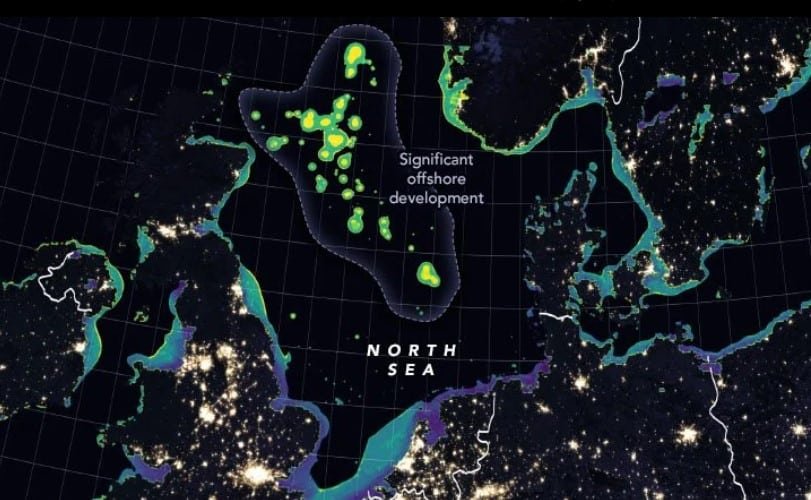
by Elizabeth Gamillo/Smithsonianmag.com
By 2060, it is estimated that coastal populations will more than double, bringing more artificial light at nighttime to previously dark areas near the shore. From raising blood sugar and heart rates in humans to confusing hatching sea turtles, light pollution has been shown to disrupt various coordinated biological functions in marine organisms.
In a new global map of oceanic light pollution, researchers have outlined large regions of the ocean that are illuminated by “artificial light at night,” or ALAN. The light, mostly produced by urban coastlines and offshore oil complexes, is strong enough to brighten deep into coastal waters, possibly altering behaviors of sea creatures thriving in darkness, reports Carolyn Gramling for Science News.
The study’s findings show how far light pollution can touch the ocean’s depths and which marine species are the most likely to experience a biological response. Details of the map were published in Elementa: Science of the Anthropocene in December 2021.
Read Full Article at SmithsonianMag.com

Carol graduated from Riverside White Cross School of Nursing in Columbus, Ohio and received her diploma as a registered nurse. She attended Bowling Green State University where she received a Bachelor of Arts Degree in History and Literature. She attended the University of Toledo, College of Nursing, and received a Master’s of Nursing Science Degree as an Educator.
She has traveled extensively, is a photographer, and writes on medical issues. Carol has three children RJ, Katherine, and Stephen – one daughter-in-law; Katie – two granddaughters; Isabella Marianna and Zoe Olivia – and one grandson, Alexander Paul. She also shares her life with her husband Gordon Duff, many cats, and two rescues.
ATTENTION READERS
We See The World From All Sides and Want YOU To Be Fully InformedIn fact, intentional disinformation is a disgraceful scourge in media today. So to assuage any possible errant incorrect information posted herein, we strongly encourage you to seek corroboration from other non-VT sources before forming an educated opinion.
About VT - Policies & Disclosures - Comment Policy



